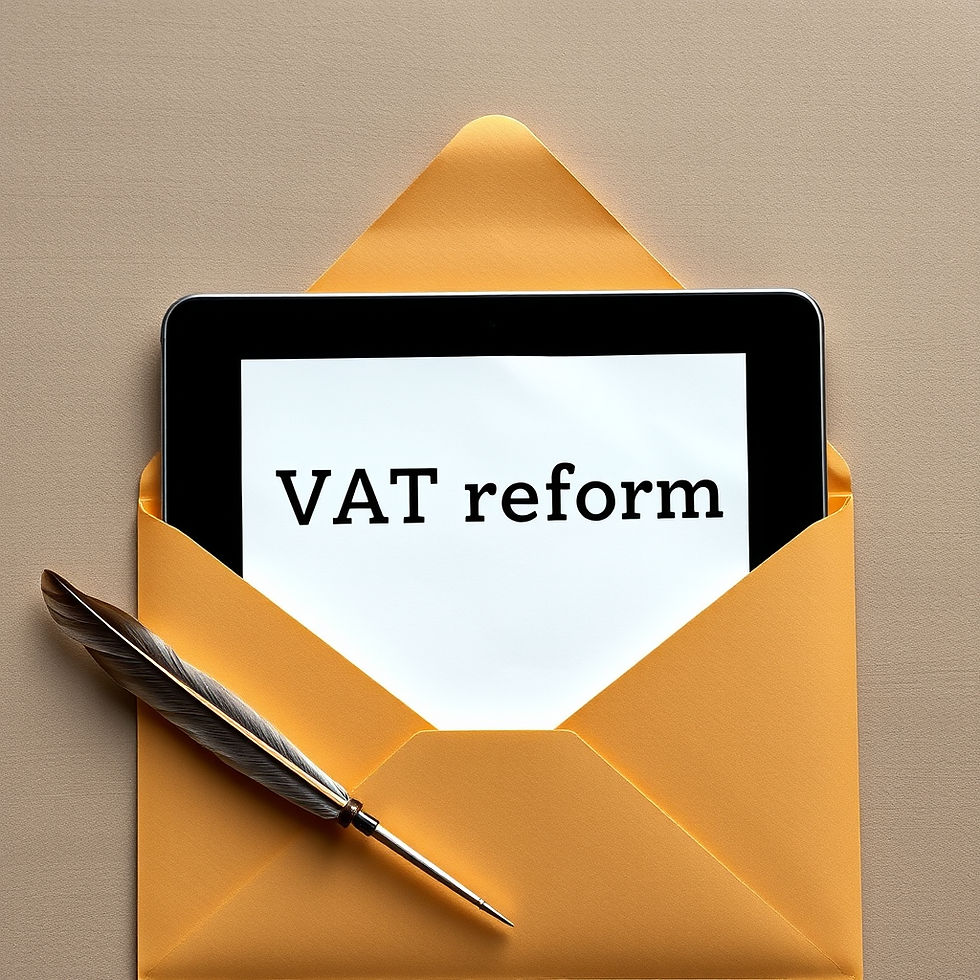Why the UK Should Link VAT Numbers and Company Numbers on One Public Page.
- Apr 9, 2025
- 3 min read
Often the excuse from Government for inaction against fraud is cost, legislation or political will. At the same time in an era where transparency and trust in digital commerce are more important than ever, it is surprising that two of the most critical business identifiers in the UK — the VAT number and the company number — are still not linked together on a single government website. While both numbers are available through different resources, the inability to view them together in one place is puzzling not least because it would be very easy to do, cost very little and would have no negative impact.
To give you an idea of the absurdity of the current regime an associate in Westminster once asked a question in the House of Lords regarding the VAT status of a number of Chinese companies that were not displaying VAT numbers but had sales on eBay far in excess of the VAT threshold. The question asked was whether these companies were registered for VAT. The reply from HMRC was that they could not answer the question due to 'tax payer confidentiality'. A number of years later one of these companies appeared on HMRC's VAT default list. Go figure.
So what can you look up ?
The UK government provides a VAT number checking service: Check a UK VAT number. This service confirms the validity of a VAT number and shows the associated company name and address.
Separately, Companies House allows users to look up registered companies using their company number: Companies House Search The Register Service.
However, these systems are not connected. You cannot search for a VAT number and see its corresponding company number and neither can you view a Company's VAT number directly from a Companies House Register.
A Simple Solution
The UK government could resolve this in one of two ways:
1. Add the company number field to the VAT checker so that when a VAT number is entered, the corresponding company number is displayed (if applicable).
2. Add the VAT number field to the Companies House Register so that when viewing a company that is registered for VAT it's active VAT number is displayed.
Given that HMRC and Companies House already (presumably) link these fields internally, the barrier to implementation from a technical perspective is likely to be minor. A colleague with greater computer ability than me assures me that from a programming perspective this is a very simple problem to fix.
Benefits
Prevents VAT fraud: Fraudsters often exploit the lack of cross-reference to create shell companies or recycle VAT numbers across different identities.
Improves compliance: Platforms like Amazon and eBay, businesses and even members of the public would be able to establish seller identities and VAT status with more confidence.
Supports honest traders: SMEs and B2B buyers can quickly verify that they are trading with a legitimate, VAT-registered business.
Reduces admin burden: No need to perform multiple lookups across disconnected systems.
Some may argue that there are privacy concerns but given VAT numbers and company numbers are already public I can't see what those might be.
Linking VAT numbers to Limited Companies does not raise new data protection issues. (Sole trader VAT data may require separate handling, but that should not block corporate transparency.) and it would be a low-cost, high-impact step toward better tax enforcement, business transparency, and fraud prevention. It would be a simple tool for honest traders and a useful tool for marketplaces, journalists, regulators, and the general public.
So why not join up the dots by linking VAT numbers to Companies ? It could literally be up and running within weeks.




Need to know how much VAT to charge clients when you send them an invoice? Use our VAT calculator to determine how much you should charge your clients, no matter where they are in the world. Just enter your amount and the VAT rate you intend to use, choose whether to include or exclude GST, and the calculator will take care of the rest.